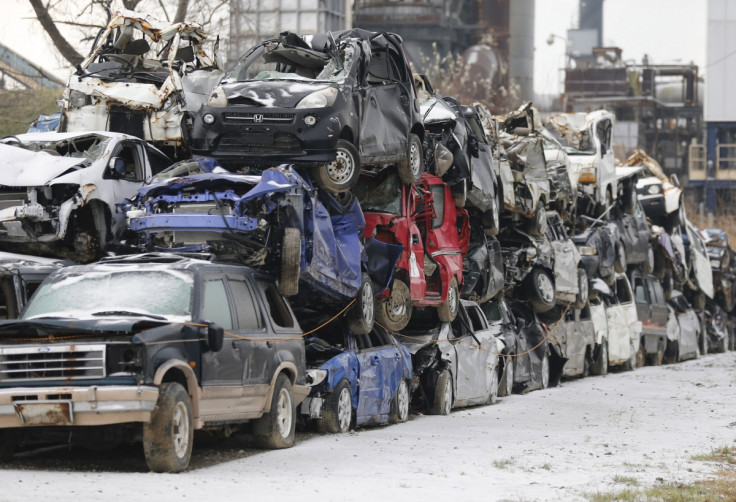Fukushima Radioactive Cars Banned from Russia

Over 130 potentially radioactive cars from Japan's nuclear disaster site Fukushima have been banned from entering Russia.
Russia's consumer watchdog Rospotrebnadzor was concerned about contaminated water from Japan's nuclear power plant and had impounded all cargo arriving from the area as a result.
According to Russia Today, Rospotrebnadzor said on its website: "In 2013, Russia banned 165 batches of contaminated goods from entering the country. There were mainly used cars – 132, and spare parts for vehicles – 33.
"Particular attention is paid to this issue in Russia's Far East, where radiation control of fish is being widely implemented, including the distribution chain."
Fish deliveries from Japan and those caught in the Pacific Ocean were also being monitored closely, it said, adding that strict control of all cargo arriving from Japan would continue throughout 2014.
The supply of fish from Japan to Russia is only allowed if Tokyo can prove that radiation levels are within the safety standards established by the Customs Union of Russia, Belarus and Kazakhstan.
No radioactive fish, or other food products failing to meet the safety standards, have been found since the 2011 Tōhoku earthquake and tsunami severely damaged the Fukushima Daiichi power plant.

The Japanese government was undertaking a $35bn (£21bn) clean-up operation. In December, the Ministry of Environment announced the operation would take two to three years longer than originally forecast, missing the March 2014 deadline.
Radiation-contaminated water has been viewed as the biggest threat to the environment in Japan and neighbouring countries.
The clean-up operation was recently criticised following a Reuters investigation that revealed subcontractors hired by government-funded firms were using homeless people as slave labour to work at the nuclear site.
The news agency found evidence that recruiters target homeless men at train stations, offering them work, food and shelter. After deductions are made for their living costs, the men often end up in debt.
Yukio Suganuma, president of Aisogo Service, a construction company hired in 2012 to clean up radioactive fallout in Tamura, said there was nothing they could do to stop the illegal practices: "If you started looking at every single person, the project wouldn't move forward. You wouldn't get a tenth of the people you need."
© Copyright IBTimes 2025. All rights reserved.






















